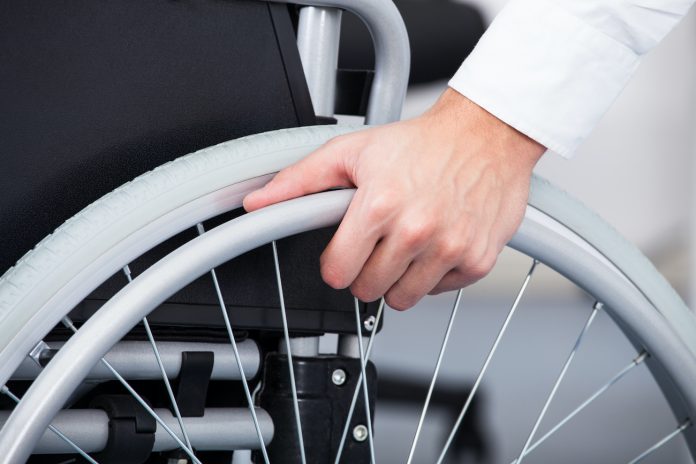
Once you’ve been hospitalised a few times you can get on a slippery slop to nowhere. Lying immobilised for any more than three days eats away at muscle mass and coordination. Any pre existing injury once easily managed – now becomes a problem. I found myself with nerve and joint pain down the left side of the body, including a contracted shoulder, leg stiffness, and tingling pins and needles.
months to learn to walk again
You see I’m a brain tumor survivor that was left with a damaged pituitary, but still managed to wean myself off hormone replacement therapy. However it was the corticosteroid – hydrocortisone that was the most difficult to discontinue. It nearly cost me life on numerous occasions. I would end up in an emergency department frequently with various symptoms related to adrenal insufficiency. But after each hospital stint, it would take me weeks if not months to learn to walk again.

For most people getting off steroids, the process is careful dose reduction over time under supervision of a medical practitioner. Let me explain: the adrenal glands are positioned over the kidneys and produce cortisol, which is the stress hormone utilised through out every cell in your body. Without adequate levels you become fatigued, nauseated and can deteriorate to a life threatening condition known as an Addisonian crisis – believe me you don’t won’t to go there. The pituitary gland situated on the base of the brain regulates the adrenal glands by producing a hormone – it’s a complex feedback loop that can be easily disrupted.
If any gland in your body is not being used frequently, then it begins to waste away and lose its abilities. So you can imagine what happens when you take steroid replacement for any length of time – it’s impossible for the adrenals to instantly bounce back into producing sufficient cortisol and can take many years to recover. In my situation after trying for eighteen months, I finally reduced my steroid dose to zero with the help of a specialist prepared to work with me, but my adrenals and the pituitary had a further period of two years regeneration to get back to normal.

During this time people around you, including physicians, can be unsympathetic and dismissive. To the observer you appear well and healthy, yet internally you feel terrible, lack strength, are constantly tired, and inconsistent in your capabilities from day to day.
I became increasingly isolated, unable to work, socialise or do anything constructive. Weather extremes were a nightmare, and I was paranoid of contracting an illness, as my body lacked the ability to mount a proper defensive if I become sick. But I persisted because the side effects of steroids are considerably worse.
I knew the only way to recover was to exercise and would try a little bit each day – too much and I’d be back on the couch for days. There were times I couldn’t walk a hundred metres, but could build that up to five kilometres over a number of weeks, experience a medical episode, and then have to start all over again. But don’t for a second feel sorry for me – I’m totally undeserving.
noticed a young girl in a motorised wheel chair
See there was an occasion when I was scheduled for an appointment with a neurologist located within an inner Melbourne private hospital. The reception area was more refined then I’d been use to – modern decor and plush chairs around a couple of low tables. My partner dropped me off before parking the car, because I was in a phase of barely managing to shuffle a few steps. I flopped into a chair and felt ashamed of my limited mobility, when I looked up and noticed a young girl in a motorised wheel chair. She had striking long brown hair, but her hands lay motionless across a communication board she was slumped over. I could see her pretty face, but her eyes were closed fast, and her mouth pursed down-turned. I understood this expression, no doubt frustrated at the end of another round of pointless and humiliating tests. She seemed a beautiful young girl cruelly denied an ordinary life.

It really hit me hard, because being parent you are often sympathetic to the plight of others, in particular innocent youth. I felt compelled to try reassure her and brighten her day in some small way. When I noticed she had a carer seated behind her tapping away on her phone, then a male colleague joined the group; he was well dressed sporting a fine knit jumper and flashing perfect white teeth. Like normal young people they chatted and flirted with one another, whilst leaving the girl out of the conversation – I wanted to intervene but questioned the appropriateness, when all too quickly my partner returned and helped me out of the chair. I turned around and the group had gone, and had missed the moment to talk with her. Since then, a day hasn’t gone by not regretting to reach out in some way.
I understand now it was just pure luck that permitted me to gain my mobility back. The same random probability that gave me the tumor in the first place. Fate the surgeon was successful in leaving enough residual tissue to enable the pituitary to regrow. And a streak of luck I survived a multitude of near death hospital experiences.
will remain eternally humbled
But sometimes I feel I’ve taken good fortune away from those who need it most, and therefor will remain eternally humbled for the gift I’ve been given.
Even so, recovering from a life threatening condition or disability, needs to be placed in perspective – you have only bought yourself a window of time. Because no matter how hard you try to hold it back, the rest of your life will eventually catch up with you.
In the meantime you should to be grateful, productive and give back to those who supported you during your period of intermission.
And to those readers experiencing similar conditions, my heart goes out to you, and I’m sending you every ounce of positive energy I can muster. I wish you all the best




